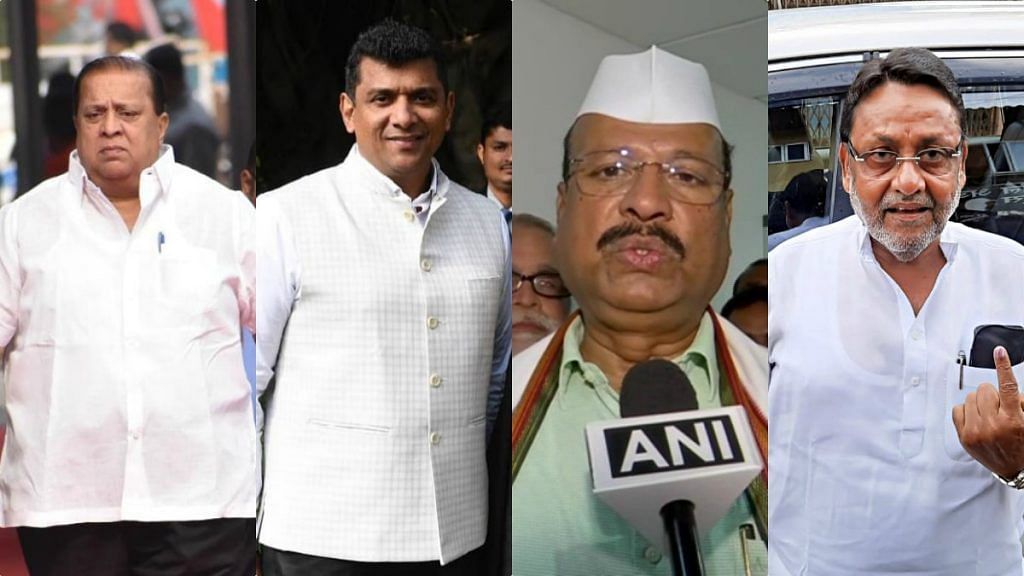New Delhi: In his cabinet expansion Monday, Chief Minister Uddhav Thackeray inducted four Muslim MLAs into his council of ministers, making Maharashtra the state with the second largest number of Muslim ministers after West Bengal, which has seven.
NCP’s Hasan Mushrif and Nawab Malik, besides Congress’ Aslam Shaikh, have been named cabinet ministers in Maharashtra, while Shiv Sena’s Abdul Sattar was made a minister of state after the expansion.
There is no Muslim minister in India’s 15 states — Assam, Arunachal Pradesh, Goa, Gujarat, Haryana, Himachal Pradesh, Karnataka, Manipur, Meghalaya, Mizoram, Nagaland, Odisha, Sikkim, Tripura and Uttarakhand — out of the 28.
Ten other states — Andhra Pradesh, Bihar, Chhattisgarh, Jharkhand, Madhya Pradesh, Punjab, Rajasthan, Tamil Nadu, Telangana and Uttar Pradesh — and the national capital of Delhi have only one Muslim minister each.
Mamata Banerjee’s Trinamool Congress government in West Bengal has seven Muslim ministers — Firhad Hakim, Javed Ahmed Khan, Abdur Razzak Molla, Giasuddin Molla, Jakir Hossain, Gulam Rabbani and Siddiqullah Chowdhury.
In Kerala, the Pinarayi Vijayan-led Left Democratic Front government has two Muslim ministers — K.T. Jaleel and A.C. Moideen.
Also read: Caste differences in govt bodies affect how lower castes get public services: Study
Muslim ministers in BJP states
Over a decade after the Sachar Committee report, which highlighted low Muslim representation across sectors, the community’s presence in state governments remains low. Of the 11 states with a BJP chief minister, Uttar Pradesh is the only one to have a Muslim in its council of ministers.
UP has the largest Muslim population in the country — nearly 20 per cent, according to Census 2011. However, the community representation in the state’s council of ministers is a mere 2 per cent.
Even the lone Muslim minister in the state, Mohsin Raza, found his way in via the Legislative Council. In the 2017 assembly elections, the BJP had chosen not to field any Muslim candidate.
Of the two states that have a BJP deputy chief minister — Nagaland and Bihar — only the latter has a Muslim minister. Handling the minority welfare department, Firoz Ahmed is the lone Muslim minister in Bihar.
According to the latest Census, the Northeast states have sparse pockets of Muslim population. Nagaland, Arunachal Pradesh, Manipur and Mizoram have small numbers of Muslims.
Assam, however, has 34 per cent people from the community. Muslims, however, still find no place in the state’s council of ministers. The BJP, which rules Assam, has only two Muslim MLAs in the state out of its 61 elected leaders — a representation of 3 per cent.
In 2016, there was just one Muslim among 151 ministers in nine BJP-ruled states, according to a report by The Hindu.
Sachar Committee report
In 2005, former Prime Minister Manmohan Singh had formed a high-level committee to look into the socio-economic condition of Muslims in India. Led by former Delhi High Court chief justice Rajinder Sachar, the panel in its 2006 report said the minority community lacked access to means of better livelihood.
Among its several recommendations, the panel highlighted the need for better Muslim representation in local and state bodies.
“Over the last sixty years minorities have scarcely occupied adequate public spaces. The participation of Muslims in nearly all political spaces is low which can have an adverse impact on the Indian society and polity in the long run,” read the report.
The Narendra Modi government released a status update report in 2019, mentioning the states that have taken these suggestions into consideration and included minorities in their urban and rural local bodies.
Andhra Pradesh, Haryana, Karnataka, Kerala, Odisha, Tamil Nadu and West Bengal and Chandigarh are among the states and union territories that have implemented the recommendation.
Other states like Assam, Chhattisgarh, (erstwhile) Jammu & Kashmir, Jharkhand, Madhya Pradesh, Manipur, Punjab, Rajasthan, Tamil Nadu and Uttar Pradesh didn’t submit any information.
Also read: Data shows Dalit MPs battle parties, voters and prejudice even in reserved seats
